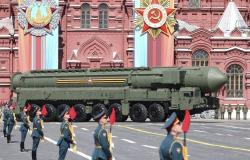Crude oil prices were on track to end the week higher, despite a slight decline earlier in the day. The markets are waiting to know what concrete measures the new American president, Donald Trump, will take and what the repercussions will be on the oil supply and on the price curve of black gold.
Brent crude oil futures remained fairly stable yesterday, moving between $74-75 per barrel, while US crude (WTI) was trading above $71 per barrel. Benchmark indices fell slightly on Thursday following a hurricane in the Gulf of Mexico, which significantly affected US oil and gas production.
Brent is expected to gain more than 2% over the week, while US West Texas Intermediate (WTI) is expected to rise more than 4%. After high volatility during trading weeks, oil prices resumed an upward curve at the start of the week, in reaction to the decision of OPEC+ to extend the voluntary reductions of eight of its members, including Algeria, until 'at the end of the year.
The OPEC General Secretariat announced, Sunday, November 3, that eight OPEC+ countries (Saudi Arabia, Russia, Iraq, the United Arab Emirates, Kuwait, Kazakhstan, Algeria and Oman ), who previously announced additional voluntary adjustments in April and November 2023, agreed to extend the November 2023 voluntary production adjustments of 2.2 million by one month barrels per day until the end of December 2024.
In addition, the eight countries reiterated, according to an OPEC statement, “their collective commitment to fully comply with the Declaration of Cooperation, including the additional voluntary production adjustments that were agreed to follow by the JMMC, during of its 53rd meeting held on April 3, 2024, and to fully compensate by September 2025 for the volumes overproduced since January 2024 in accordance with the compensation plans submitted to the secretariat of OPEC.
The countries also “took note of the recent announcement made by Iraq and the joint statement made by Russia and Kazakhstan, in which they strongly reaffirmed their commitment to the agreement, including the additional voluntary adjustments of production and their compensation schedules for the excess volumes produced since January 2024″, also underlined OPEC in a press release, which gave a positive signal to the market, inducing an immediate gain of more than 2 dollars per barrel in course of quoting.
Prices then increased slightly during the day on Thursday, due to expected measures on the oil front from the new Trump administration.
The oil market's initial reaction to the news of Trump's victory was bearish, but prices subsequently rebounded, “largely due to expectations that the Trump administration would tighten sanctions on Iran and the Venezuela, which would have repercussions on supply,” according to analysts. Trump's “pro-oil and gas” stance also suggests, according to Oil Price, that his administration would encourage increased oil and gas production in the United States, which would have an adverse effect on prices.
Some analysts, however, believe that changes in American federal policies could be fewer and more moderate.
“Our basic view is that Trump takes a relatively pragmatic approach to policy, in which he chooses either not to pursue more radical policy changes or is held back by institutional constraints or the influence of political advisers more moderate,” said BMI of Fitch Solutions cited by Reuters.






